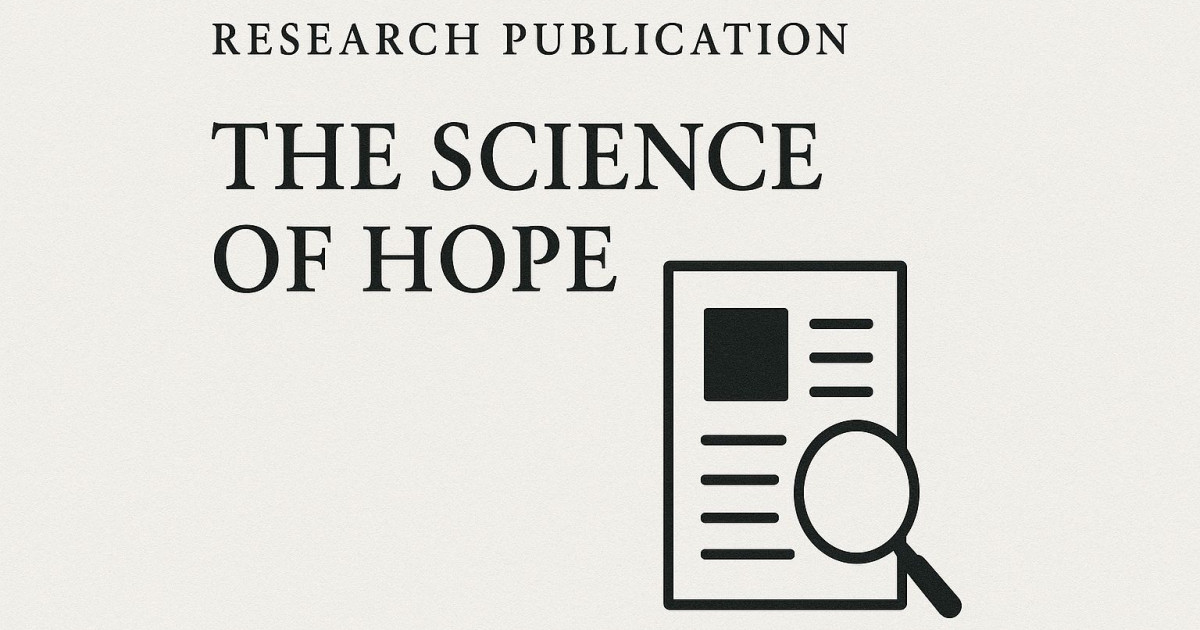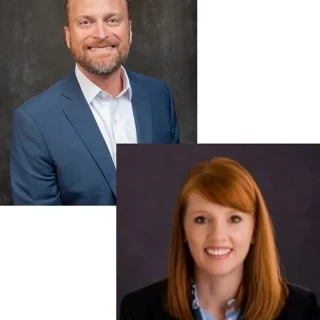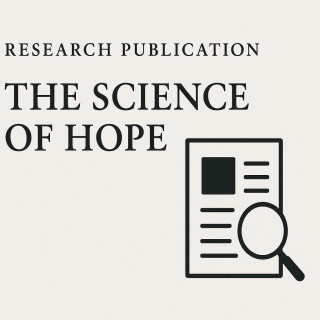Publication | A Simulation Training to Prepare Camp Counselors for Working with Children at Camp HOPE America

A Simulation Training to Prepare Camp Counselors for Camp HOPE America
Children who grow up in homes where domestic violence occurs often carry wounds that are invisible yet deeply disruptive. They may struggle with anxiety, aggression, depression, or difficulty trusting adults. These children are navigating trauma at an age when safety, stability, and encouragement are critical. For many, the future feels uncertain, and hope—an essential ingredient for resilience—seems out of reach.
Camp HOPE America was created to address this very challenge. It is the first evidence-based summer camp and mentoring program in the United States specifically designed for children exposed to family violence. The camp is built on a simple but powerful philosophy: children who have endured trauma can heal and flourish when they are given the opportunity to experience joy, build relationships, and, most importantly, discover hope. Camp activities focus on “challenge by choice” experiences such as zip-lining or canoeing, group bonding exercises, and structured conversations about setting and achieving goals. Every component is designed to help campers reimagine their futures with a sense of possibility.
But for this mission to work, camp counselors must be more than activity supervisors. They are role models, mentors, and trusted adults who carry the responsibility of creating safe, affirming, and empowering experiences for children who may never have had those in their home lives. Many of these counselors are college students or young adults who are deeply committed but may not yet have the training needed to respond to disclosures of abuse, de-escalate crises, or nurture hope in the face of adversity.
This is where simulation-based training comes in.
Beyond Lectures: Training Through Simulation
Traditional counselor training often relies on presentations, manuals, or classroom-style instruction. While these approaches build knowledge, they do little to prepare counselors for the real-life intensity of a child disclosing abuse, experiencing a breakdown, or acting out because of trauma. Simulation training takes preparation to a deeper level.
In this model, counselors are placed into realistic, staged scenarios with trained actors portraying campers. They are confronted with situations such as:
A camper sharing that they are harming themselves.
A child lashing out angrily and losing control.
A young person quietly disclosing sexual abuse at home.
Counselors must navigate these interactions in real time, practicing the skills of empathy, boundary-setting, crisis response, and hopeful communication. Their sessions are recorded, allowing them and their trainers to review, debrief, and refine their approach. This creates a safe but challenging environment where mistakes become learning opportunities, and successes build confidence.
Building Counselor Hope to Build Camper Hope
One of the most striking findings from this training is that counselors themselves grew more hopeful. They reported increased confidence in their ability to respond to trauma, stronger belief in their own resilience, and greater clarity about how to model hope for children. This matters because hope is contagious. A counselor who believes in possibilities, who can calmly and compassionately guide a child toward seeing new pathways, becomes a living example of resilience.
During the simulations, counselors were observed practicing key interpersonal skills such as building rapport, expressing empathy, and maintaining boundaries. Many demonstrated the principles of hope theory—helping campers identify goals, explore different pathways to achieve them, and recognize their own willpower to persist even when obstacles arise. For children who have lived through violence, these conversations can be transformative.
Although there were some less helpful responses, such as making promises that couldn’t realistically be kept or asking investigative questions better left to professionals, these instances were rare. The overwhelming majority of interactions reflected trauma-informed care and hopeful communication.
Why This Matters for Youth Development
The broader lesson from this study is clear: when we invest in counselor training that goes beyond information and immerses staff in experiential practice, we create the conditions for life-changing growth among both counselors and campers. Camps already serve millions of children every year, offering opportunities for adventure, friendship, and learning. For children who carry the heavy burden of trauma, the stakes are even higher.
Hope is not just a comforting idea—it is a measurable, teachable, and practical strength. It gives young people the capacity to imagine a future, set goals, find ways to overcome barriers, and maintain the motivation to keep moving forward. When hope is nurtured, it becomes a protective factor that buffers against the long-term effects of trauma.
Simulation training equips counselors to bring this science of hope to life. By learning how to respond effectively to disclosures, guide children through emotional storms, and help them see new possibilities, counselors become catalysts for resilience. And as they themselves grow in hope through the training, they become even stronger role models for the children they serve.
The Path Forward
Camp HOPE America’s use of simulation training points toward a future where all youth-serving programs—whether camps, schools, or afterschool initiatives—equip staff to handle trauma with both competence and compassion. The lessons learned here are relevant not only for children who have endured family violence but for any setting where young people face adversity.
Counselors who leave this training do not become therapists. Instead, they emerge as steady, empathetic adults who can recognize when a child is in distress, respond in ways that build safety, and most importantly, foster hope. In many cases, this may be the first time a child has had an adult believe in their ability to create a brighter future.
The science is clear: hope can be taught, nurtured, and strengthened. Camp HOPE’s simulation training shows us how. By preparing counselors in this intentional, immersive way, we give children not just a safe week at camp—but a powerful spark of resilience that can ripple forward throughout their lives.


